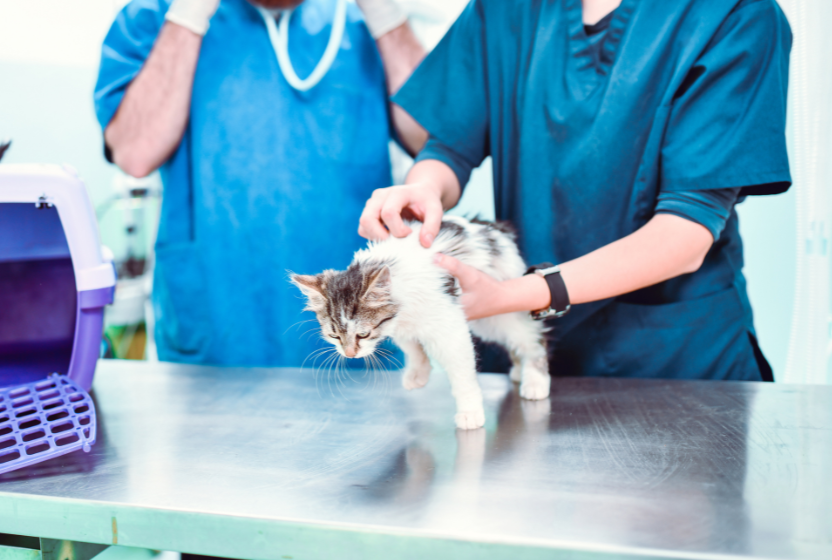New cat
How to set up your home to help your new cat settle in quickly
Cats, Adopters, Cat behaviour, Kitten

Here is information about cat vaccinations so you can feel more confident in discussions with your vet about your pet’s health.
This set of core vaccinations protect pets when at their most vulnerable and provide a blanket of protection for those who are not vaccinated, as it lowers the chances of the disease being present in the environment.
These are in two doses, with the second given 3 weeks after the first (although your vet will confirm this when you book).
Here’s what your kitten will get vaccines for, with the first dose at aged from 8 weeks of age:
• Feline panleukopenia virus, also known as infectious enteritis or feline parvovirus, FPV
• Feline calici virus and feline herpes virus, FCV and fHV
• Feline leukaemia virus, FeLV
You may also get a vaccine for rabies, if you are planning to take your pet to the EU.
Let’s take a closer look at what we are protecting from.
We deal with the first three of these at the rehoming centre on a regular basis from unvaccinated animals, especially those who have been living in dirty or overcrowded conditions.
Feline panleukopenia virus
Affects white blood cells, and gives fever, diarrhoea and vomiting. Kittens born from infected mums will often have issues with their brain development, particularly with movement and co-ordination. It is highly contagious from the infected cat’s poop and wee and can survive on grass, shoes, unwashed bedding etc. for several months. Death rates are very high, over 90%.
Feline calici virus
A flu-type virus which causes horrendous mouth ulcers, which tends to repeatedly flare up in infected cats. Around 65% of infected kittens will die.
Feline herpes virus
Commonly known as ‘cat flu’ it causes breathing problems, which tends to repeatedly flare up in infected cats. Around 25% of infected adult cats will die, especially if they are already compromised health-wise, and for kittens the death rate is up to 50%.
Feline leukaemia virus
Affecting the immune system, it can also cause cancerous tumours with most cats dying within 3 years of diagnosis. It is highly infectious, although doesn’t last long in the environment so is more spread in social cat groups and multiple cat households who are sharing bowls and grooming each other. We tend to see it at the rehoming centre in stray cats who have been bitten, but thankfully only a couple of cases each year.
Rabies
An infection in the brain which kills all infected animals and people. This disease is still around in the world and is now only rare in the UK because of good hygiene in our environment, plus we have spent decades eradicating them through vaccinations and quarantine, and we want to keep it that way!
Every year, we take our pets into the vets for ‘boosters’ to ensure immunity.
Some vaccines have a longer lifespan than others, so although booster jabs will be one injection it will be a different mix depending on what is needed. For example, FeLV vaccine will be given every 3 years, and the others every year.
If your cat is indoor-only, you can discuss with your vet about which boosters are relevant for them.
IMPORTANT Many boarding catteries and insurance policies will expect your cat to be up to date with vaccinations and boosters.